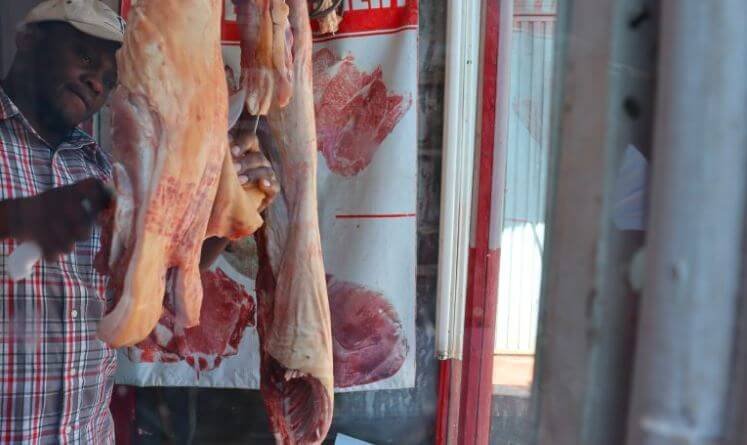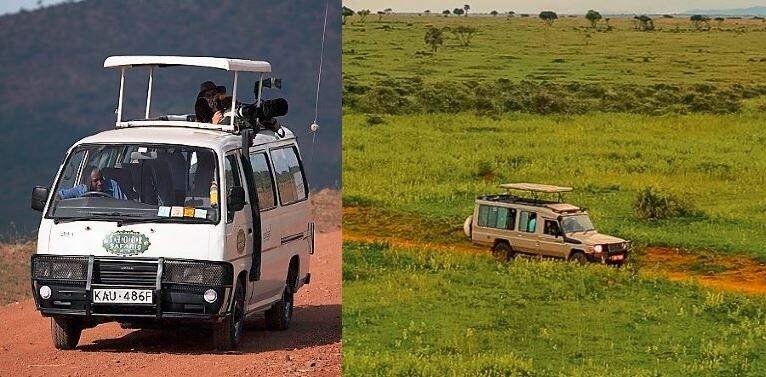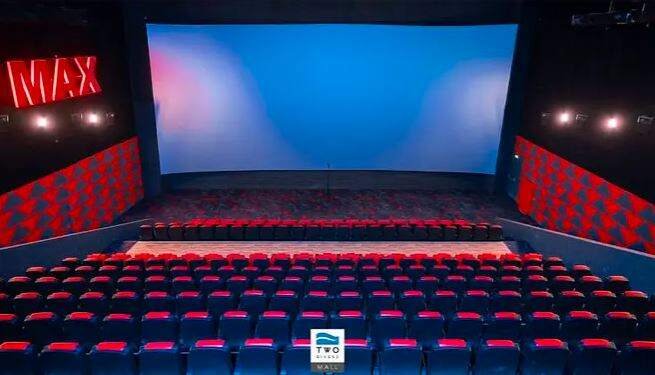So you want to start a butchery business in Kenya? Well, you have a wonderful plan since butchery is one of the profitable business ideas in Kenya. However, you must know what it takes to be a successful butchery businessperson. As a result, we have compiled this guide on how to start a butchery business in Kenya to make your work easy.
To start a butchery business in Kenya, you need enough starting capital, a butchery business plan, a suitable location, and the necessary licenses and permits. With these necessities at hand, you’re ready to go as no one will come to disturb you.
In the rest of this article, I’ll guide you through everything you need to start a butchery business in Kenya, including the capital. I’ll also talk about how to choose the right location for the business. Keep reading to learn all these!
Step-by-Step Guide on How to Start a Butchery Business in Kenya
To start and run a successful butchery business in Kenya, you must follow the following steps.
Raise Capital
The start-up cost of this venture is based on the site and size of your butchery. These two factors will determine the amount of money you’ll need to get your butchery off the ground.
A small seized butchery in a low-income area will cost you between Ksh. 25,000 and Ksh. 50,000. A medium-sized butchery in a middle-sized area will cost you between Ksh. 75000 and Ksh. 100,000, and a large butchery in a high-income area will cost you Ksh. 200,000 and above.
Butcheries in affluent places will demand you to spend a lot of money on decor and other amenities to attract more customers. While in a low-income location, you only require the necessities.
Also, you can cut down the budget by not having a freezer if you reduce your stock to only what customers demand.
Related: Profitable Businesses to Start in Rural Areas in Kenya
Write a Butchery Business Plan
To start a successful butchery business, you should define your strategies, goals, and steps to accomplish them. For instance, if you choose a low-income area, one of your objectives should be to offer the best products at reasonable costs. Your marketing strategies should focus on this market.
Your business plan should comprise all these factors and a SWOT analysis, which is an assessment of the strengths and weaknesses in your business and the opportunities and threats you may encounter in the future.
However, you should not overdo it and include every detail in your business plan. Identify the essential details and leave the rest. A business plan is a flexible document you can update and modify as your business expands.
Identify a Suitable Location
You can’t start a business anywhere simply because you’ve got a business idea. Where you set up your butchery can make or break your business venture. Knowing the kind of people in a certain area will help you understand what they want.
For instance, you can’t set up a pork butchery business in a location where more than half of the population is Muslim. You should locate your butchery business in a high populated and busy area.
Your butchery should be easy to see and access. A suitable place to set up a butchery business should be along a market, near supermarkets or shopping centers, on busy streets, or in any other area with significant pedestrian traffic.
You should have enough parking areas and a clean environment for a large butchery to attract more customers.
Create a Business Name
Once you’ve identified a suitable location, it’s time to develop a business name for your butchery. Create a name that will be easy to remember. You may opt to name it after yourself, a family member, the location where it’s situated, or any other appropriate name.
If you want to open a shop in a rural area, it’s recommendable to choose a name that the locals can easily pronounce. This will enable customers to identify and locate your butchery with ease. Selecting a brand name may sound simple, but it’s quite a serious matter. Your business name should be:
- Different from your competitor’s name
- Suitable for butchery business
- Short and easy to pronounce
- Memorable
- Not offensive
- Clarifying what you do to attract customers.
Acquire Necessary Licence and Permits
To run a butchery business legally in Kenya; you must have a business permit. You’ll need to apply for a single business permit. The cost differs depending on your county. To apply, visit the e-citizen portal. The application costs Ksh. 200.
The permit also varies depending on the number of employees you intend to have. For a medium-sized business, the permit costs Ksh. 10,000 and caters to 5-20 employees. While for a large-sized business, the permit costs Ksh. 20,000 and caters to 21-50 employees.
Besides the single business permit, you’ll also require the following licenses;
Food Handling Certificate.
The certificate costs Ksh. 600, and you should renew it after six months.
Health Certificate/Public Health License
You can obtain the license from your local public health offices. Individuals handling meat must have a medical certificate. The medical certificate costs around Ksh. 500, and you can get it from your local hospitals.
Fire Safety Certificate
The certificate costs Ksh.3,000, and it’s renewed annually.
Identify a Reliable Meat Supplier
There are two ways you can get meat for your butchery.
- Get a supplier
- Buy sheep, goats, or cows and slaughter them yourself( from an authorized slaughterhouse).
Identifying a supplier.
If you opt to get a supplier, you’ll have an easy time as you won’t be slaughtering or hiring people to slaughter the animal for you. Working with a supplier requires you to have good relations with them since they are essential to your business’s success.
Therefore before signing any contract, consider whether you can trust them and maintain a long-term relationship with them. Getting a good supplier is very critical to your butchery business success. Hence you should look for a reputable supplier.
Shop around before settling for any supplier, ask your friends and relatives or get referrals from your community. If not, you can try asking local butcheries for recommendations.
Advantages of a supplier
- Supplier will always deliver meat to your butchery regularly.
- You can negotiate prices with them since you purchase their goods wholesale.
- You only get the amount of meat you need to sell in a day, reducing the chances of meat going bad.
- You won’t have to worry about the practicalities of slaughtering the meat.
- You save time by not having to look for animals to slaughter.
- You receive already checked meat; therefore, you won’t incur the cost for that.
Disadvantages of a Supplier
- If you fail to maintain a good relationship with your supplier, they may not supply the meat on time, so ensure you have a proper communication system to avoid misunderstanding.
- Working with a supplier may lower your returns since they’ll also be looking to earn something.
- Your supplier may not supply the quantity you ordered; hence setting a minimum weight requirement for your meat is essential.
Buying Sheep, Goats, or Cows and Slaughtering for Yourself
You may opt to purchase the animals from local farmers and slaughter them for yourself. Although it’s an ideal way of ensuring you’ve adequate meat regularly, it can be costly.
For example, if you’re purchasing one goat weekly to supply your butchery, you’ll be required to pay for the whole animal, not just the meat, as the animal supplier normally doesn’t separate them.
In such a situation, knowing what to look for is essential to ensuring your final products meet the quality standards. For example, confirm the animals are safe and healthy for human consumption when purchasing.
Additionally, there are rules and regulations to bear in mind if you opt to slaughter the animals for yourself. For example, you’ll have to slaughter from an authorized slaughterhouse, not your business premises.
Normally there are people in the slaughterhouse who knows how to do it better. You only need to take your animal to the slaughterhouse and pay a person who will do it a small fee. Also, you may be required to pay the slaughterhouse fee.
A public health professional will also inspect and approve your meat before you take it to the butchery. You’ll also be required to pay for it. However, the total cost combined isn’t that high, and you can manage to pay them comfortably.
Advantages of Slaughtering For Yourself
- Since you select the animal yourself, you are sure of its quality.
- Since you won’t have to share your profits with suppliers, you’ll be able to save more money.
- If you’re a good negotiator, you may obtain a reasonable price for the animals.
Disadvantages Of Slaughtering For Yourself
- You’ll be required to pay someone to slaughter the animal, which is an extra cost.
- You’ll pay transportation costs, which may lower your returns
- Slaughtering for yourself implies you’ll have a lot of meat that may go to waste if you don’t sell it immediately. If not properly kept, meat goes bad in two days.
- You’ll have to pay for meat inspection and approval, which may reduce your returns.
Get the Necessary Butchery Equipment
Before starting the butchery business; you must have the necessary equipment. You may opt to buy or lease the required equipment. Leasing is an ideal alternative since it allows you to bargain for a fair price on the equipment you need, and you can also prorate the cost over the leasing duration.
If you opt to purchase equipment, ensure they are of high quality so they will last longer.
Equipment Needed to Start Butchery Business
The following are equipment that you must have while opening a butchery business in Kenya.
| Equipment | Average Cost (Ksh.) |
| Freezer and refrigerator | 40,000 |
| Display Counter | 50,000 |
| Knives( at least two) | 1,000 |
| Weighing scale | 5,000 |
| Wooden lump (at least two) | 2,000 |
| Butchery hooks | 2,000 |
| Wrapping material | 2,000 |
| Butcher’s coat | 1,000 |
Butchery Design In Kenya
Butchery designs in Kenya are always unique and designed solely for butcheries for convenient locations by the customer.
Meat Pricing
Meat prices differ from one place to the other depending on the time of the year, supply price, and meat availability. The beef meat usually costs from Ksh.350 to Ksh.450, depending on the location.
While pricing, consider the meat supply price, your location, and other miscellaneous. You can set the meat price to make a 20% profit. You can sell your meat at Ksh 500 per kg if your butchery is in a high-end town. One kg of goat meat can go upto Ksh 600. However, you should consider the price of your competitors.
Bottom Line
A Butchery business is among the most lucrative ventures in Kenya. The high demand for Nyama choma places it among the top startups. To be successful in this venture, you must learn how to operate a butchery business.
I hope this guide on how to start a butchery business in Kenya has come in handy to help you get started.







